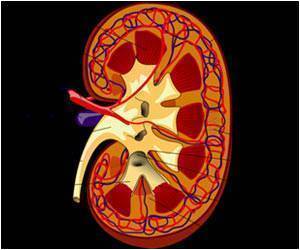
The prevalence of any diabetic kidney disease has reduced from 28% in 1988-1994 to 26% in 2009-2014. But the two clinical manifestations of kidney disease have changed considerably.
The condition called albuminuria (presence of protein in the urine) reduced from 21% (1988-1994) to 16% (2009-2014). Glomerular filtration rate (GFR) or an impaired ability of the kidneys to excrete waste products, increased from 9% to 14% during the same period.
In the United States, diabetes is the leading cause of kidney disease and is responsible for half of end-stage renal disease requiring dialysis. According to the Centers for Disease Control and Prevention, one in 10 American adults, more than 20 million have some degree of chronic kidney disease.
The researchers analyzed the data of 6,251 adults with diabetes who were participating in the National Health and Nutrition Examination Surveys from 1988 to 2014. "We were wondering what's happening with diabetic kidney disease in the last 30 years with advances in treatment," said de Boer.
The higher rate of prescribed diabetes therapies such as glucose-lowering medications, renin-angiotensin-aldosterone system (RAAS) inhibitors and statins may be leading to the decreasing prevalence of albuminuria. The researchers noted that the therapies are probably working. But, there was an increase in reduced kidney function, as measured by GFR testing. The researchers could not explain the reason. They noted that it is possible for treatments to reduce GFR.
Advertisement
The study is published in JAMA, the Journal of the American Medical Association.
Advertisement















